How to Build a Police State While No One Notices
Spiritual Influences at Work Enslaving America
A few weeks ago I wrote piece entitled, The Unwarranted Pursuit of Perfecting Societal Mental Health is the Trojan Horse Ushering in the American Police State. This Substack is a sequel of sorts, which I wrote as a comprehensive look defining the sequence of events orchestrating the authorization and implementation of police state capabilities in Georgia, paid for by Georgia taxpayers, under the guise of promoting the public welfare. The enslavement of men has always been a spiritual conversation, and so I treat it that way. I offer my thoughts basing them on a spiritual foundation, but also an historical one, noting the extent to which slavery infested our nation from inception through the culmination of the American Civil War. So, this is not a light read, purposely. I want it to be both meaningful and factual, such that the reader will leave with matters to consider, as well as an assignment to contemplate.
Part 1-Spiritual Influences at Work Defining World Events
I have heard it often repeated, “Those who do not learn from history are doomed to repeat it.” That is because a close examination of historical records regarding various events and circumstances of the past, when compared to our own, often rhyme, as if they might relate in certain ways, perhaps driven by similar causes. Were that not true, axioms such as I bring forward above would never have been authored. But a question remains, how might events and circumstances relating to different peoples, of different cultures, in different areas of the world, during different epochs, demonstrate the kind of congruence the axiom suggests?
My guess, and I suppose it’s only a guess, derives from my world view. Your guess may differ based upon yours.
My world view informs me that the universe in which all physicality resides is crafted from power, knowledge and intentions so inconceivable that the only term I might find to characterize it is to express that the measure of each is, for all practical purposes, “infinite.” No one, animated within a state of physical existence, appears capable of fully comprehending what physical existence even means, much less be able to satisfactorily express what it means to others, given our vantage points living within the system. My world view, however, does inspire faith that one day we might more fully understand these matters, transported to a realm of existence outside of time and outside of the physical constraints defining our present captivity. My faith assures me that there is existence outside of time and physicality, housed within a certain realm in which only one’s soul and spiritual intentions register, intentions which I expect shall bear heavily on the question whether we will be welcomed, or not, into the presence of our Creator.
And this distinction between mutually exclusive spiritual intentions, labeling those, say, “good” or “evil,” thereby serves to define that which our Creator, God, considers acceptable, or unacceptable, within His midst. Because certain quantities of both, serve as constant contributors to the spiritual makeup of men, and because it is that spiritual makeup which determines the purposes of men’s physical pursuits, the perpetual presence of those spiritual substances, “good” and “evil,” in varying proportions, may explain why human events and circumstances in this world, influenced heavily by them, while they may not perfectly repeat, do at least seem to rhyme. That history repeats, or rhymes, appears therefore of a design so intelligent that the human mind can barely scratch the surface of its extents, a factor so limiting that it makes recognizing these universal truths difficult, especially when accomplishing mere survival in an environment forcing us to compete for limited resources, more often than not, captures the bulk of our limited attention. In short, because the spirits of good and evil, essentially substances of a non-physical dimension, transcend time and space, constantly influencing men’s purposes, events of the world largely influenced by those competing substances, noticeably rhyme as history proceeds.
Conditions Leading Up to the American Civil War Analogous to Conditions today
So, why did I go there, discussing spiritual influences at work defining world events as a prologue to a main discussion? I did it to build a case that in order to better determine our generation’s place in history, and better relate to future events we experience in this life, a healthy dose of historical perspective could become a most valuable tool.
Scripture informs the believer, “A house divided cannot stand.” To the believer, that principle, as recorded in all three synoptic gospels, is an immutable truth, imparted by Christ into the physical world. Scribed within the 12th Book of Matthew, in order to counter the arguments of Pharisees attempting to discredit his works as works of Satan, Jesus spoke the following:
26 If Satan casts out Satan, he is divided against himself. How then will his kingdom stand? 27 And if I cast out demons by Beelzebub, by whom do your sons cast them out? Therefore they shall be your judges. 28 But if I cast out demons by the Spirit of God, surely the kingdom of God has come upon you.
In expressing this argument to the Pharisees, Christ spoke concerning the very same spiritual substances I reference above, “good,” which Jesus portrays as the “Spirit of God,” versus “evil,” which he portrays as the spirit of Beelzebub, also Satan. Waged since the dawn of human existence, in these passages Jesus refers to a perpetual war being fought among human inhabitants of earth, not only between and among themselves severally, but also centered within the minds of each. It is that spiritual war taking place in each human mind, which influences each of us to undertake the actions and purposes we seek to accomplish, moment by moment, each next purpose ultimately decided by spiritual influences inclining our behavior, forces which we have along the way invited to live within our hearts. Because we invite those spirits, both good and evil, God and Satan, into our hearts, the principle that men should live by free will cannot be thwarted by either. Only men themselves, choosing intentions aligned with the will of one or the other, God or Satan, moment by moment, can do that. And that is where a discussion of certain men purposing to enslave other men, and the reasons for those purposes begins.
Lincoln’s House Divided Speech as a Pattern for Understanding Our Place in History
The role of spiritual forces perpetually influencing human events now hopefully established, I would like to direct your attention back to June 6th, 1858, reportedly around 8 PM, when, as a private citizen, Abraham Lincoln entered the Illinois State House in Springfield having earlier that evening received his party’s nomination as the Republican candidate for US Senate. Lincoln would run against the present holder of that office, Democrat Stephen Douglas. That evening, Lincoln offered perhaps the most controversial speech of his pre-presidential political career. That speech is know as Lincoln’s “House Divided Speech.” The reason I bring this speech up is that, knowing well the content of Lincoln’s remarks that evening, and possessing, I believe, a fair grasp of the events and circumstances of our political world today, while the events Lincoln describes may not repeat verbatim at any time during the future, they do appear to rhyme with those with which we contend today. And because the content of Lincoln’s remarks to the Illinois gathering center around the question whether one man can justifiably enslave another, you might sense whither this discussion is tending.
Lincoln began his speech uttering a line which should catch a patriot’s attention today, “If we could first know where we are, and whither we are tending, we could then better judge what to do, and how to do it.” Well, patriot friends, isn’t that statement as true today as it was then? Do not the circumstances about which Lincoln spoke in 1858 rhyme with those about which we struggle to decide our current paths?
For the next twenty minutes, Lincoln attempted, in his own way, to provide insight for the crowd assembled to better understand, “where they are and whither they are tending,” such that they might better judge, “what to do and how to do it.” Would that Lincoln could advise us today. Although that can never happen, we can take note, recognizing similarities between the circumstances with which Lincoln dealt in 1858, and those with which our generation contends today.
In his next paragraph, the future 16th President of the United States alleged to the crowd,
“We are now far into the fifth year, since a policy was initiated, with the avowed object, and confident promise, of putting an end to slavery agitation. Under the operation of that policy, that agitation has not only, not ceased, but has constantly augmented. In my opinion, it will not cease, until a crisis shall have been reached, and passed.”
The policy to which Lincoln referred was the passage of certain legislation sponsored by his political opponent, Senator Douglas, the Kansas-Nebraska Act, which became federal law in 1854. That law dealt primarily with the question whether western territories moving toward statehood would enter the union as free states, or as slave states, the law providing that question to be decided by a vote of popular opinion in each territory (a vote of white men, of course) as it moved toward statehood. According to the law’s proponents at the time, passing the the Kansas-Nebraska Act would effectively “put an end to slavery agitation.” But according to Lincoln that night, since its passage, slavery agitation had not ceased, but instead gathered momentum. Lincoln offered his opinion that under that policy, agitation would not cease, “until a crisis shall have been reached, and passed.” To my friends and readers I ask, does not Lincoln’s appraisal of the political circumstances, as he portrayed in 1858, describe a destination we appear to be heading today? Are we not tending toward some ultimate crisis of sorts? Here again, we see one of history’s rhymes unfolding.
Lincoln then offered a most controversial theme for his speech, beginning by quoting Scripture,
“A house divided against itself cannot stand." I believe this government cannot endure, permanently half slave and half free. I do not expect the Union to be dissolved -- I do not expect the house to fall -- but I do expect it will cease to be divided. It will become all one thing or all the other.
“Either the opponents of slavery, will arrest the further spread of it, and place it where the public mind shall rest in the belief that it is in the course of ultimate extinction; or its advocates will push it forward, till it shall become alike lawful in all the States, old as well as new -- North as well as South. Have we no tendency to the latter condition?”
I don’t know about you, but the sentiments Lincoln expressed fit my appraisal of political events in our country today. While names certainly change as generations go and come, global forces at work enslaving the American people today appear more than willing to force their purposes throughout the fifty states. As a matter of course, either those forces will be successful, “till it shall become alike lawful in all the States,” or American patriots will place the spread of globalism “where the public mind shall rest in the belief that it is in the course of ultimate extinction.” That is the present circumstance I see, friends. That is the issue. That is the war we are fighting today. Were I to start from scratch to describe our present reality, I could not do it better than Lincoln did in June of 1858, again, demonstrating the rhyming nature of history.
So, let’s drive a stake in the ground, securing our gains of insight, and proceeda little deeper into Lincoln’s speech. Next, and I think, quite interestingly, Lincoln dons the mantle, perhaps claiming title as America’s first true “conspiracy theorist,” raising the specter to his audience that over the previous four years, with hardly anyone recognizing the machinations involved, individuals among them, specifically “Stephen” (Douglas, Democrat Illinois Senator), “Franklin” (Pierce, 14th President), “Roger” (Taney, Chief Justice US Supreme Court), and “James” (Buchanan 15th President), conspired to bring about conditions under which a federal Supreme Court case (Dred Scott) would decide Douglas’ Kansas-Nebraska Act not only applied to territories entering statehood, but also to existing states, preventing those states from outlawing slavery, all in an attempt to “push [slavery] forward, till it shall become alike lawful in all the States, old as well as new -- North as well as South.” The question whether the advocates of slavery would prevail, making the “peculiar institution” legal in all states, would become the issue over which the American Civil War would soon commence. The Civil War would become the “crisis” Lincoln described during his speech that day.
Today, even non-believers would find it difficult to deny that the enslavement of men, by other men, is an act of pure, spiritual evil. Looking back at those times, how do we rationalize those living in that day could not see enslavement for what it is, an act of evil intentions? Again focusing our sights on the present, we see the rhyme of history at work. Why can’t people around us recognize similar efforts to enslave men, by other men, for what they are, acts of evil? One answer, I believe, is that men, caught up in the day-to-day activities of life, have other matters to attend, putting food on the table for one.
But another answer, I believe, is that evil works in darkness. Evil never tells what it is doing. Evil subverts the truth to perfect its purposes, aspiring not to be discovered until those purposes can be accomplished. Evil fabricates cover stories, perpetual narratives to hide its activities from the public, effectively erecting scaffolding on which to suspend it purposes until they become ripe, explaining to questioners that the supports erected for those purposes are for future societal improvements, purely to promote the public good.
That evening, Lincoln testified as to certain evil plans and adaptations executed by the four men to whom he refers, Stephen, Franklin, Roger, and James, who during the previous four years, he alleges to have executed a plan which would bring America to the point of crisis. Lincoln illustrates his allegation using the following metaphor:
“We can not absolutely know that all these exact adaptations are the result of preconcert. But when we see a lot of framed timbers, different portions of which we know have been gotten out at different times and places and by different workmen -- Stephen, Franklin, Roger, and James, for instance -- and when we see these timbers joined together, and see they exactly make the frame of a house or a mill, all the tenons and mortices exactly fitting, and all the lengths and proportions of the different pieces exactly adapted to their respective places, and not a piece too many or too few -- not omitting even scaffolding -- or, if a single piece be lacking, we can see the place in the frame exactly fitted and prepared to yet bring such piece in -- in such a case, we find it impossible not to believe that Stephen and Franklin and Roger and James all understood one another from the beginning, and all worked upon a common plan or draft drawn up before the first lick was struck.”
Part 2- A Defining Look at the Events Necessary to Build a Police State While No One Notices
The reason I offer the content of Lincoln’s “House Divided Speech” to you today, in the context of an ongoing spiritual war between good and evil, is for you to have the opportunity to gather sufficient mental awareness, and furthermore, the perspective necessary to recognize that the circumstances about which Lincoln spoke in 1858, when compared to those of today, expose the very real possibility that those many trust in elected office at state and local levels, right here in Georgia, while “hardworking Georgians” toil to make a living and place food on the table, are in fact working in concert erecting a physical and technological system of enslavement, analogous to the one erected by Stephen, Franklin, Roger and James, it’s many parts manifesting almost identically to the structure Lincoln describes, built under a cloak of darkness, under the guise of providing future societal improvements, designed to promote the public good. The system to which I refer I allege is presently, likely being built by Georgia elected officials, some who work under the cover of darkness, such that the enslavement machinery can be legislated, authorized, funded and installed without the people noticing. The public good this enslavement mechanism is touted to promote, is the perpetual pursuit of achieving a perfected state of behavioral health among the inhabitants of Georgia. A series of enabling events leading to my present concerns began more than a decade ago:
In January of 2009, the DOJ filed a lawsuit against the State of Georgia alleging state hospitals were violating patients’ constitutional and statutory rights in multiple ways.
In response to the DOJ lawsuit, soon the first element of scaffolding arrived on the job. That occurred when Governor Sonny Perdue signed HB228 (2009), establishing the Georgia Department of Behavioral Heath and Developmental Disabilities, and Addictive Diseases. The task of the new department would largely involve concerns of the federal investigation, the lawsuit, and the requirements of a settlement agreement being planned by the litigating parties.
In January 2010, Georgia officials announce the Central State Hospital in Milledgeville would be downsized.
Later that year, the United States Department of Justice, in the person of Sally Yates, US Attorney for the District of North Georgia later fired by President Donald Trump for insubordination, filed a new complaint against the State of Georgia for violating the Americans with Disability Act.
In October of 2010, rather than fight the case in court, the State of Georgia settled with President Obama’s Department of Justice, the DOJ’s Office of Public Affairs announcing that the agreement would, “Transform the State of Georgia's mental health and developmental disability system.”
By July of 2011, the State of Georgia agreed to stop all State Hospital admissions of individuals with a primary diagnosis of a developmental disability (read the definition in the settlement) and began releasing individuals from the State Hospital.
https://www.justice.gov/sites/default/files/crt/legacy/2011/01/10/US_v_Georgia_ADAsettle_10-19-10.pdf ( page 5, number 1, section a)
From 2011-2015, Georgia was given a specific number of individuals it had to release from the State Hospitals. https://www.justice.gov/sites/default/files/crt/legacy/2011/01/10/US_v_Georgia_ADAsettle_10-19-10.pdf (page 6, letters A-F)
Under the agreement, those released would be provided state and federal subsidies for community housing, medical, education, transportation, nutrition, and other services.
https://www.justice.gov/sites/default/files/crt/legacy/2011/01/10/US_v_Georgia_ADAsettle_10-19-10.pdf (page 5-10, section III, number 2)
The 2010 settlement required Georgia to provide housing for an estimated 9,000 individuals with “serious mental illness” and a “forensic status” (a.k.a. criminal record). The settlement described these individuals as frequently readmitted to the state hospitals, emergency rooms and/or being chronically homeless after being released from jails or prisons. (page 11, section B, number 1)
These estimated 9,000 people (in 2010) were required to receive “Assertive Community Treatment (ACT).” ACT services include case management, housing, crisis services and abuse services. These community services must be provided 24 hours a day, 7 days a week. (page 12-13, number 2)
Because the individuals released into the community all bear significant mental health diagnoses, that fact gave rise to the need that they be electronically monitored and/or tracked.
The need to receive and store electronic monitoring/tracking data gave rise to HB227 in 2019, creating GDAC, the Georgia Data Analytics Center, a bill signed into law by Governor Brian Kemp.
Meanwhile…Back at the Ranch…
At this juncture, I want to stop, take a breath and back up for a moment. Speaking now of Brian Kemp, in 2017, because of an reported breach in the computer system of the Georgia Center for Elections Systems at Kennesaw State University, then Secretary of State, Kemp was able to gain control over the operation of Georgia’s statewide election system, the alleged “breach” handing him the perfect opportunity to cancel the state’s contract with Kennesaw, and bring control and oversight of Georgia elections directly under his office, and under his people, just in time for the 2018 mid-terms, an election in which he would challenge to become Georgia’s Governor, and in which candidate Brad Raffensperger would take Kemp’s place. Thus, in 2018, Brian Kemp would personally supervise both his election as governor, and also the election of Brad Raffensperger to become Georgia’s Secretary of State.
The computer breach was not as serious as anyone claimed, possibly even a ruse. We know that because, within a week of publicly humiliating the operation of elections at the KSU Center for Elections Systems, and announcing an internal investigation of the breach, vowing that heads would roll, instead, Secretary of State Kemp turned 180 degrees, placed a smile back on his face and hired CES Director Michael Barnes, the individual most responsible for the alleged breach, to run his new in-house election system at the Secretary of State’s Office, VoterGA reporting,
As it turns out, the “reckless behavior, inexcusable conduct, gross incompetence and undeniable ineptitude,” which according to Kemp, was the reason for closing CES and moving its functions directly under his personal control, according to Kemp’s new attorney of record Ryan Germany, turned out to be certain election workers simply following “standard operating procedure.” Thus, Brian Kemp got what he wanted, personal control of the Georgia election system while maintaining continuity in operation.
As Kemp and Raffensperger took their respective offices, the old, tried and true voting system, one that had never caused any significant problems, was thrown on the ash heap of history, replaced by a new voting system the use of which over the last two elections has resulted in enumerable allegations and citations of election fraud, the beneficiaries, if true, being the establishment Republicans elected to statewide office in 2018 and 2022, Kemp, Raffensperger and Attorney General Chris Carr, along with two Democrat US senators presently occupying seats in the US Capitol, and, let’s not forget, of course, Joe Biden. That’s a pretty equitable deal, Republicans in charge of the state, and Democrats in charge of the federal government. Everyone got what they wanted, along with a new election system that could be used to overrule any objection to governmental policy the public might voice at the polls. Any American witnessing the events I bring to your attention today, if seen occurring in a 3rd world country, would naturally conclude they were orchestrated as a means to further implement a police state. But, of course, this is America…
Resuming the Narrative of Events
With Brian Kemp Georgia’s Governor, with Georgia’s election system under his and SoS Raffensperger’s control, and with GDAC approved, its facilities funded and under construction, a manner in which to gather and transmit data associated with mental heath patients who, by virtue of the 2010 settlement between Georgia and the DOJ, must be monitored 24/7/365, became a front burner item. That data, including proprietary data analytics, once beginning to flow, would be housed, maintained and distributed by GDAC.
In 2022, Georgia Representative Todd Jones (R-25) introduced HB1013, the Georgia Mental Health Parity Act. Mental health parity simply means health insurance providers must cover mental health and substance use disorder benefits the same way they cover physical health benefits. Thus, if an insurance company chooses to cover physical health benefits, it is federal law that it also cover mental health and substance use disorders. That is a convenient requirement in federal law, which creates a funding mechanism for mentally ill individuals, no longer confined in state hospitals, now required to be tracked 24/7/365, the data continuously collected to be housed at GDAC. HB1013, as proposed and passed by the Georgia House of Representatives, included commentary on the proposed necessity to “track compliance outcomes” of the mentally ill released under the DOJ settlment.
HB1013, as proposed by Jones, established a new office of Health Strategy and Coordination, under the Governor, empowered to,
Thus, once again, we see legislation being proposed at the Georgia General Assembly requiring the tracking of mental health patients living among the general population, and the housing and sharing of the resulting data, which would be accomplished at GDAC.
Further down in the bill, additional provisions required “tracking metrics for individuals with mental illness.”
Fortunately, due to a firestorm of public outcry, in the final draft, which passed into law, the only reference left authorizing the tracking of individuals with mental illness are the following six lines:
Thus, as we speak the only authority given the State of Georgia to track and collect data of “individuals with mental illness,” is to “explore strategies” to do so.
HB520 Is Introduced in 2023
Stymied regarding an obvious attempt to authorize the tracking and collection of data of “individuals with mental illness,” during the 2023 General Assembly Representative Jones went to the well again, introducing HB520, which unlike HB1013, the Georgia Mental Health Parity Act, bears hardly a title at all, its cover page merely calling it, “An Act.”
There are two interesting sections of HB520, which regard (1) the collecting and transmitting of data and predictive analytics from an undefined EXTERIOR DATA SOURCE, and (2) the receiving and sharing of the same across all executive agencies, lines 969-971 proposing the following authorities:
Coincidentally, as you may know, in 2020, shortly aftere GDAC became a reality, Representative Jones founded a company marketing a product that tracks and collects GPS and biometric data from individuals subjected to it, uses proprietary business intelligence to perform predictive analytics on the data, and which could obviously fill the roll authorized under line 971, becoming an EXTERNAL DATA SOURCE. As such, the product could supply both data and predictive analytic compliance reports to governmental offices using the system. The resulting output would, of course, be housed at GDAC for all state executive agencies to gain access.
Under part (2) above, once HB520 stalled in the Georgia Senate, lines regarding those provisions were extracted, passing both houses on the last day of the session under SB23. According to those provisions, GDAC would become an AGENT TO ALL EXECUTIVE AGENCIES upon the governor’s signature. That provision conceivably meant GDAC would act as a seamless, frictionless central node in the system, RECEIVING data and predictive analytics from not only any and all executive state agencies, but also from EXTERNAL DATA SOURCES, and TRANSMITTING the same to any and all other executive state agencies upon request, hardly a consideration given regarding a genuine ‘need-to-know,’ or a reason an executive state agency may make such a request. Once information would be received by ONE state executive agency, under these provisions it could conceivably belong to ALL executive state agencies. Apparently, GDAC could function as a mindless robot, receiving “government information” from both interior and EXTERNAL DATA SOURCES, and transmitting that information upon request. Therefore, upon the governor’s signature of SB23, once both of those parts of HB520 would pass into law, data and predictive analytics collected and transmitted from a monitoring/tracking entity, becoming an EXTERNAL DATA SOURCE, would be accessible by all state executive agencies, possibly with no questions asked. That unbridled practice would be egregious, and the unchecked power of GDAC to receive and transmit information, regardless of reason, is an accute danger to the personal freedom of individuals unfortunately living under the system.
But Kemp did not sign SB23, issuing a statement that parts of it were unconstitutional.
No Problem! Rather than signing a bill Kemp described as unconstitutional, on September 1 of this year, Georgia’s chief executive signed an executive order providing many of the same authorities to GDAC conveyed under SB23, previously conveyed under HB520, and which he vetoed.
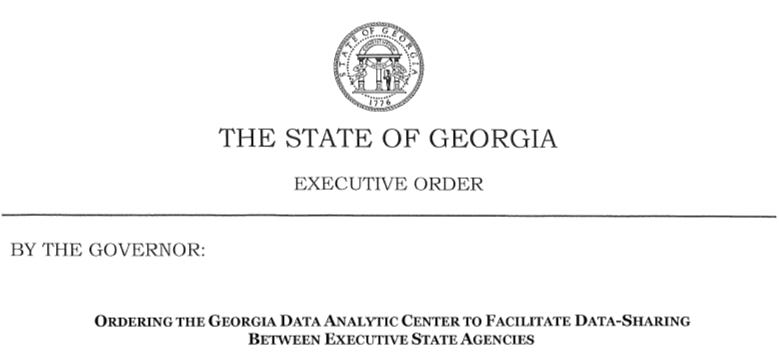
Problem, Reaction, Solution
At this time, before taking you down the last rabbit hole, I think it important to summarize all that we have learned.
First of all, we saw the definition of a PROBLEM. That problem was spelled out in a federal lawsuit initiated by Sally Yates, US Attorney for North Georgia. Specifically, the problem Ms. Yates alleged in her case was that the treatment of mentally-ill patients at Georgia State hospitals was not in accordance to federal law.
Anticipating the PROBLEM, the State of Georgia created an entirely new Georgia Department of Behavioral Health and Developmental Disabilities (DBHDD), that department handed the responsibility of administering the requirements of the settlement agreement to come.
The state’s REACTON was not to fight Ms. Yates in court, but instead to work out the settlement. The settlement would require Georgia to release 9000 mentally ill patient then housed in state facilities, over time, and devise a plan to monitor their activities 24/7/365, for their own protection as well as the protection of others with whom they might come in contact.
The state SOLUTION began with the creation of GDAC, the Georgia Data Analytics Center, assigned among other tasks the responsibility to receive, house and transmit both data and data analytics coming to it from various state agencies, to include EXTERNAL DATA SOURCES.
Next, the Georgia legislator referred above started a company equipped with readily-available, patented technology, qualifying the company to become a viable EXTERNAL DATA SOURCE, supplying both data tracking services and business analytics to GDAC. An unknown number of additional Georgia legislators, some who would be empowered to vote on legislation affecting the state’s SOLUTION, are recruited and joined the enterprise.
Next, legislation, HB1013, providing authority for the tracking of mentally ill individuals, was introduced by the same Georgia legislator and part owner of the company whose patented services are as described above, the bill dropped in the hopper during the 2022 Georgia General Assembly. Thankfully, most references directly authorizing tracking services were removed before passing due to public outcry.
Finally, a second attempt to authorize the collection of data and business analytics provided by EXTERNAL DATA SOURCES was introduced by the same legislator sponsoring HB1013 during the 2023 Georgia General Assembly. The bill was passed in the House and presently sits in a Senate subcommittee.
So, I want you to notice something, that these events and circumstances are all brought about by your government finding a PROBLEM, your government REACTING to the PROBLEM it found, and your government devising a SOLUTION to the PROBLEM to which it REACTED. None of these concerns arose from concerns of the people of Georgia.
PROBLEM- The DOJ lawsuit, mentally ill individuals are not being treated as per federal law
REACTION- The settlement, Georgia agrees to release and monitor the mentally ill individuals it releases, 24/7/365.
SOLUTION- Implementing the settlement by creating the authority for tracking mentally-ill individuals, collecting, analyzing and storing the data at GDAC, and distributing the resulting information to executive state agencies at their request.
Should your government’s SOLUTION be fully implemented, a veritable police state would only lack one item.
Multi-State, Police Jurisdiction Laws Already on the Books
The item to which I refer is the ability to arrest and transport individuals subjected to the police powers created to control anyone subjected to the system. For a truly effective police state to operate to its utmost, not only must individuals chosen for surveillance be tracked, the resulting data being stored or archived, but should those individuals leave their permitted geographical boundaries, the system must capture and return them, even across state lines. To accomplish that purpose, a multi-state legal jurisdiction must be agreed and become law in each state.
State laws and interstate agreements creating a multi-state “serious mental illness” jurisdictional dragnet are already on the books of Georgia, along with practically every other state in the nation. The Georgia law is Ga. Code § 37-10-2, entitled, “Georgia Interstate Compact on Mental Health.”
The compact authorizes the following:
Thus, according to this agreement among the states, dangerous, or even potentially dangerous “patients,” having vacated their original jurisdictions of confinement in one state, when tracked to any other state, shall be apprehended and returned to the original jurisdiction with no formal extradition proceeding necessary. Once that would be accomplished, all that would be required to close the loop creating a police state would be to have qualified individuals on-call authorized to diagnose and issue such orders. Those laws and multi-state jurisdictional agreements are also already on the books, and can be found under Ga. Code § 43-10A-51, the “Professional Counselor Licensing Compact.
Provision “O.” defines the term ‘Licensed Professional Counselor’ as an individual authorized to “diagnose behavioral health conditions.”
Once an individual might be labeled a “familiar face,” and diagnosed with a “behavioral health condition,” a “Licensed Professional Counselor” in one state would be authorized to sign an order for such an individual to be arrested and returned across state lines to his or her original jurisdiction, where one can reasonably expect he or she would be confined until such time as the counselor believes the individual would no longer be a flight risk or a danger.
On May 21, 2021, Georgia’s Brian Kemp became the first governor in the nation to sign on to the “Professional Counselor’s Licensing Compact.” Are you surprised?
Dots All Connected
Once all of the requirements listed above can be implemented, a veritable police state would be complete. For the police state to operate, an individual must be found seriously mentally ill, becoming what state authorities would consider a danger, either to him or herself, or to others, at which time a tracking device such as is described in recent legislation would allow his or her speedy apprehension and a return to confinement, having been found non-compliant according to certain proprietary data analytics programming, powered by artificial intelligence.
You don’t believe any of this?
That’s fine. But whether you or I believe an American police state will shortly become a reality, I simply remind you of Lincoln’s remarks in June of 1858, when he spoke the following:
“We can not absolutely know that all these exact adaptations are the result of preconcert. But when we see a lot of framed timbers, different portions of which we know have been gotten out at different times and places and by different workmen -- Stephen, Franklin, Roger, and James, for instance -- and when we see these timbers joined together, and see they exactly make the frame of a house or a mill, all the tenons and mortices exactly fitting, and all the lengths and proportions of the different pieces exactly adapted to their respective places, and not a piece too many or too few -- not omitting even scaffolding -- or, if a single piece be lacking, we can see the place in the frame exactly fitted and prepared to yet bring such piece in -- in such a case, we find it impossible not to believe that Stephen and Franklin and Roger and James all understood one another from the beginning, and all worked upon a common plan or draft drawn up before the first lick was struck.”
The flow if history is such that events and circumstance, viewed from a certain perspective, consistently rhyme. We have seen how events unfold and ultimately resolve, many times, stemming from the time of Lincoln to the present. Our times are no less treacherous than Lincoln’s as we seek to understand what is happening to our country and what we can do about it. I do not expect our generation will escape an analogous crisis, coming at it over the hill. The nature of the crisis, I cannot say. But one thing is certain, and that is that only an alert and knowledgeable citizenry can compel our governmental to respect the authority of the people. How the people force that respect is the question of our time.






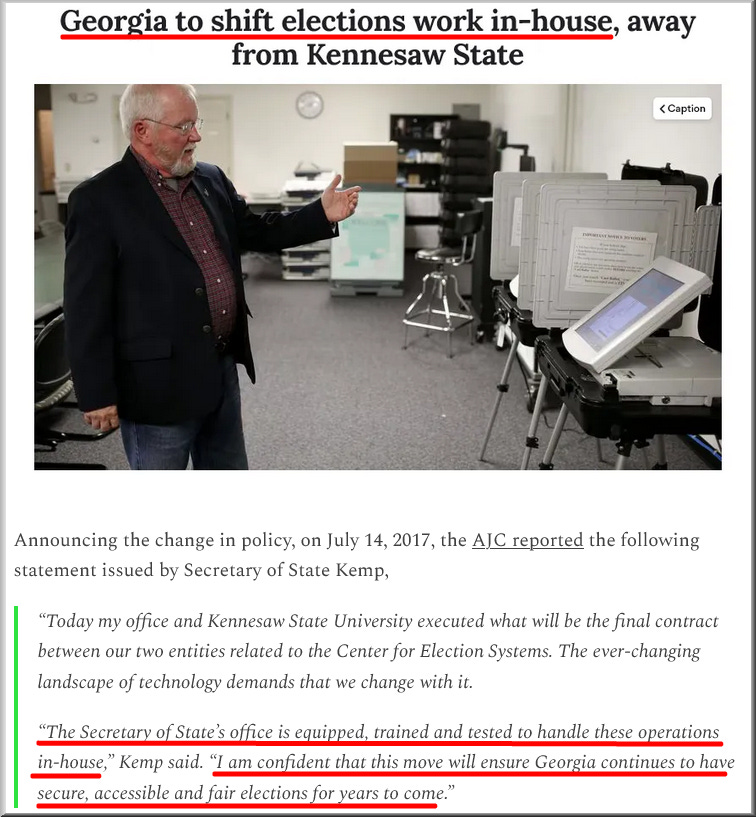


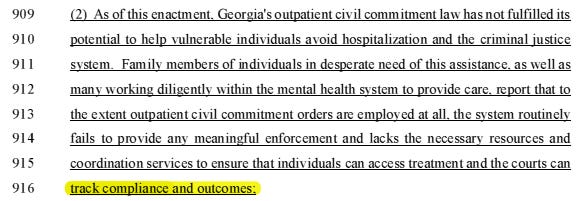




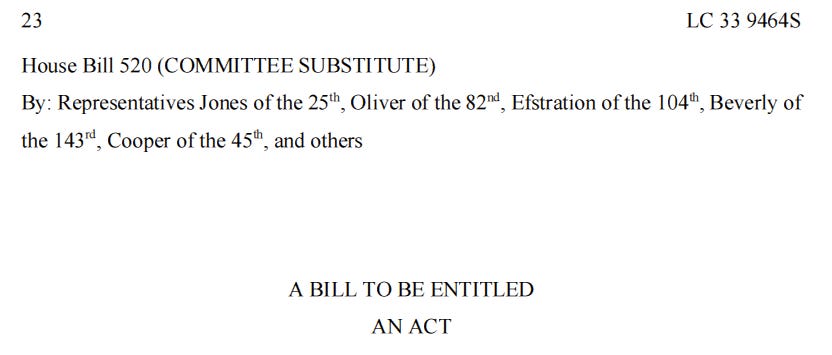

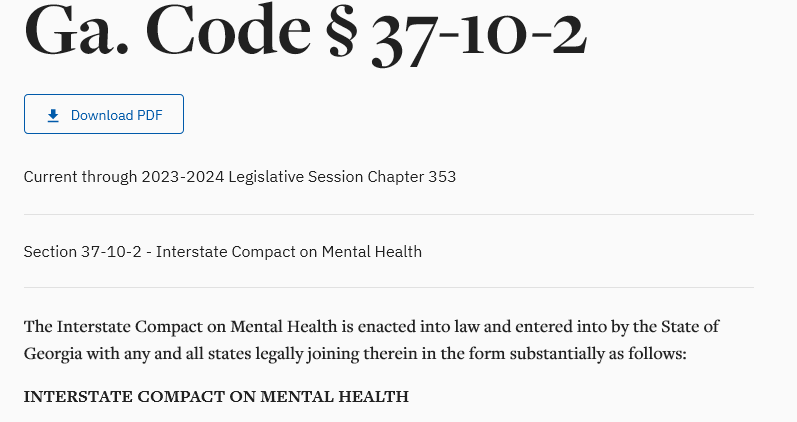

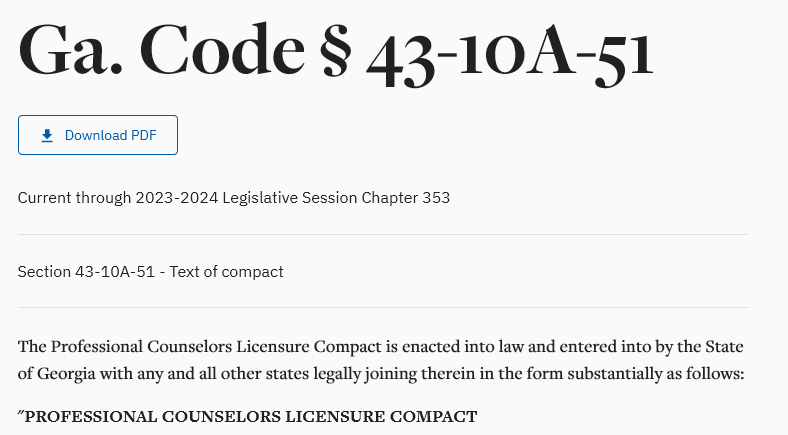
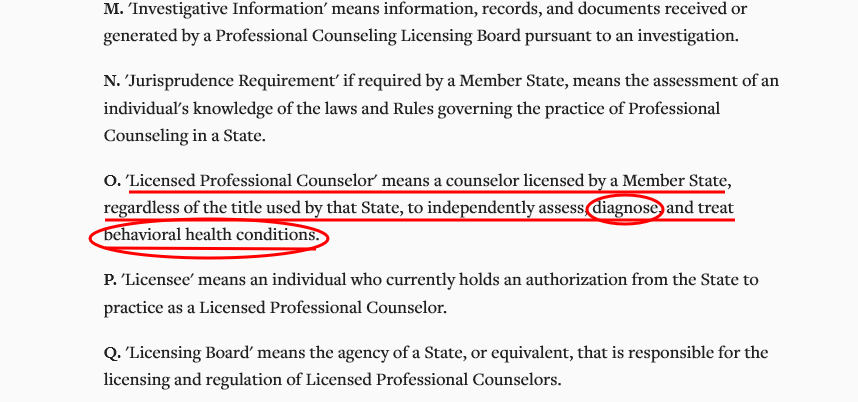
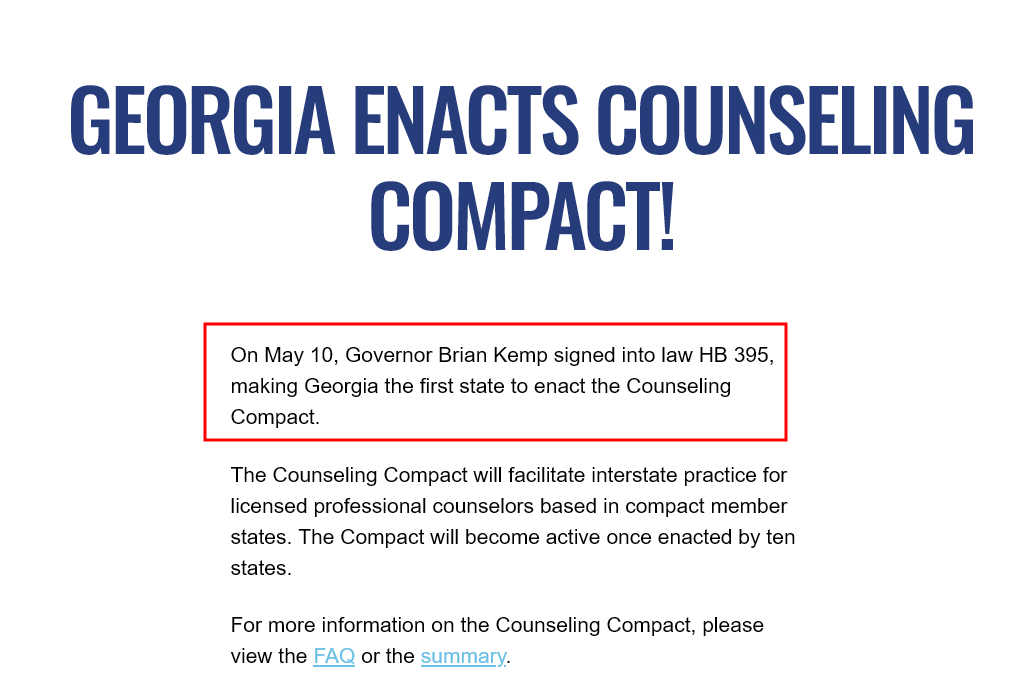

With the invasion of our southern border, the financial/economy outlook seeming uncertain, the J6 scam, the phony Trump indictments ,Biden’s impending impeachment, the multitude of gaslighting by MSM and the Democrats(the dangerous reporting of a Trump dictatorship),there is no telling what could or will happen in 2024. We must prepare ourselves spiritually for what will happen. No doubt the spiritual forces of evil have something in store. Don’t be taken by surprise.
"Politics is the art of looking for trouble, finding it everywhere, diagnosing it incorrectly, and applying the wrong remedies.”
Who said this?
Wait for it.
Groucho Marx